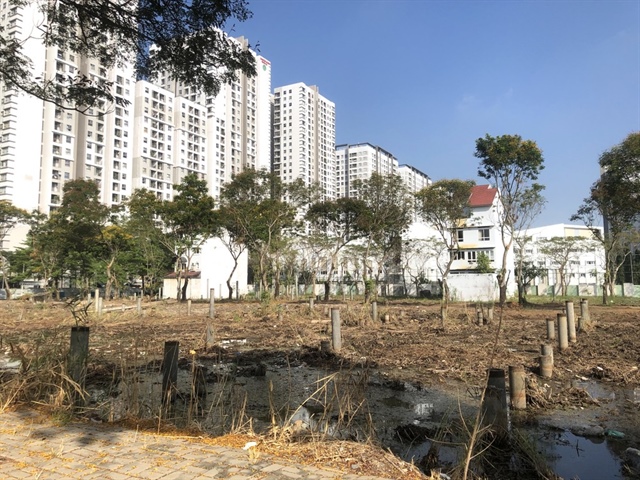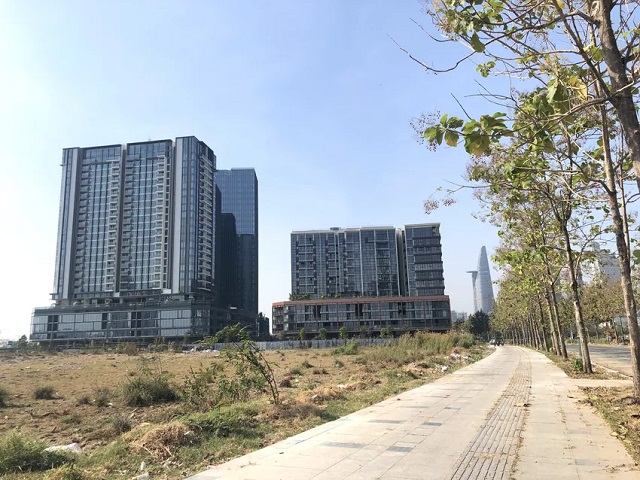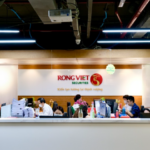The Ministry of Finance is drafting a new Investment Law (replacement) to promptly address institutional bottlenecks, streamline investment and business procedures, and facilitate ease for citizens and enterprises. Notably, the Ministry proposes abolishing the investment policy approval procedure.
This proposal has sparked debate. However, experts argue that while originally designed to manage foreign direct investment (FDI), the investment policy approval procedure has become a significant barrier for domestic businesses over the years.
An Inappropriate Barrier
If you ask ten businesses about their biggest hurdle in project implementation, nine would likely point to this procedure. Particularly in real estate, the Ho Chi Minh City Real Estate Association (HoREA) reported that a commercial housing project must navigate 7-9 procedures, spanning 3-5 years, before obtaining a construction permit. Among these, securing investment policy approval is the most arduous and unpredictable phase.
According to Mr. Le Hoang Chau, Chairman of HoREA, ironically, this one-stop-shop procedure ends up costing businesses more time and often leads to gridlock.
 Eliminating the investment policy approval procedure saves investors time and costs. Illustration: QH |
Mr. Dau Anh Tuan, Deputy Secretary-General of the Vietnam Chamber of Commerce and Industry (VCCI), notes that certain project types, such as housing development for sale, rent, or lease-to-own, and urban areas with land use of 300 hectares or more, or a population of 50,000 or more, currently require the Prime Minister’s investment policy approval.
Mr. Tuan believes this regulation is no longer suitable given the rapid urbanization and widespread development of housing and urban projects across localities. Requiring each project to seek the Prime Minister’s approval is excessive, hindering investment in this sector.
|
In the current context, with transparent and publicly available information on planning, development plans, and land funds, businesses are fully capable of assessing their projects’ compliance with specialized legal regulations without an additional administrative approval step. Mr. Dau Anh Tuan – Deputy Secretary-General, VCCI |
Recently, Mr. Nguyen Huu Thap, Chairman of the Tuyen Quang Province Business Association, submitted a proposal to amend the 2020 Investment Law. Mr. Thap asserts that the investment policy approval procedure is a major obstacle to private sector development.
Delving deeper, Mr. Thap highlights that the Land Law already has stringent regulations on planning and land use purposes. Once businesses are allocated land by the state or win auctions in compliance with planning, they should naturally have the right to invest in non-prohibited sectors. Requiring an additional investment policy approval is redundant, adding no management value but increasing administrative burdens.
A Solution for Management
Amid strong reform pressures, the draft Law on Investment and Business has offered a concrete solution: rather than complete abolition, it significantly narrows the scope of the investment policy approval procedure. This approach reflects the drafting agency’s responsiveness, eliminating the procedure for projects not requiring initial screening.
Specifically, Article 26 of the draft Law clearly outlines cases exempt from the investment policy approval procedure, marking a significant step forward in relieving the burden for most projects.
Exemptions include projects already in national or provincial sector plans; projects where investors have won land use rights auctions or investor selection bids; investors winning mineral exploitation rights auctions; and investors tasked with building technical infrastructure for industrial clusters.
Instead of complete abolition, the drafting agency opts to reduce the scope of pre-screening. The procedure will remain as a necessary filter for large-scale projects impacting national security, defense, the environment, or sensitive projects like casinos and nuclear power plants.

To ensure a smooth business environment while mitigating risks, experts emphasize the need for effective ex-post supervision mechanisms. Illustration: QH
|
Eliminating the investment policy approval procedure for many projects underscores the urgent need to strengthen post-supervision mechanisms. Lawyer Dao Van Hung, Director of the Institute of Legal Science and Business Development, analyzes that ensuring a smooth business environment while avoiding risks requires building effective ex-post supervision mechanisms.
First, enhance the role and quality of planning. Amend the Planning Law to ensure sector and field plans are clear and transparent, serving as a reliable guide for investors.
Second, improve the effectiveness of specialized supervision tools. “Instead of focusing on a gatekeeping procedure, prioritize the quality of ex-post stages like construction permits, fire prevention, and especially environmental impact assessments (EIA),” shares Lawyer Hung.
Third, Lawyer Hung recommends shifting focus to post-licensing supervision and inspection. Establish mechanisms for periodic and unannounced inspections of investors’ legal compliance during project operation. Fourth, enhance accountability. Both management agencies and investors must take full responsibility for project decisions and outcomes.
|
Abolish, Don’t Amend the Investment Policy Approval Procedure In my view, the investment policy approval procedure should be immediately abolished as it is no longer appropriate, burdened by a begging mechanism, and hinders business development. This deep administrative intervention contradicts market principles by allowing state agencies to decide core project elements instead of investors. It imposes cost burdens, risks, and stifles creativity. Particularly, the complex requirement to prove two years of financial capacity excludes small and newly established businesses from investment rights. This procedure also overlaps and cannot replace environmental or construction regulations. Therefore, the solution is not amendment but complete abolition, replaced by a transparent legal system centered on business freedom. Dr. Nguyen Dinh Cung, Former Director of the Central Institute for Economic Management |
QUANG HUY
– 07:30 15/10/2025
Coca-Cola Vietnam Plant in Ho Chi Minh City Concludes Operations After 30 Years
Nestled along Vo Nguyen Giap Street in Linh Xuan Ward, Ho Chi Minh City, the Coca-Cola project will conclude its 30-year legacy on September 27, 2025.
Clarifying the Regulations on “Suspension” and “Termination” of Investment Projects
The government has mandated a comprehensive study to establish clear regulations regarding the authority, procedures, criteria, and documentation required to determine the “suspension or termination of project activities.” This initiative aims to effectively address the aforementioned projects, ensuring the efficient utilization of state, business, and citizen resources, thereby preventing wastage.
Empowering the Government in Regulating Conditional Business Sectors and Professions
The Ministry of Finance has proposed amending the Investment Law by empowering the Government to issue the List of Conditional Business Sectors and Trades, rather than redefining it within the existing legal framework.




















